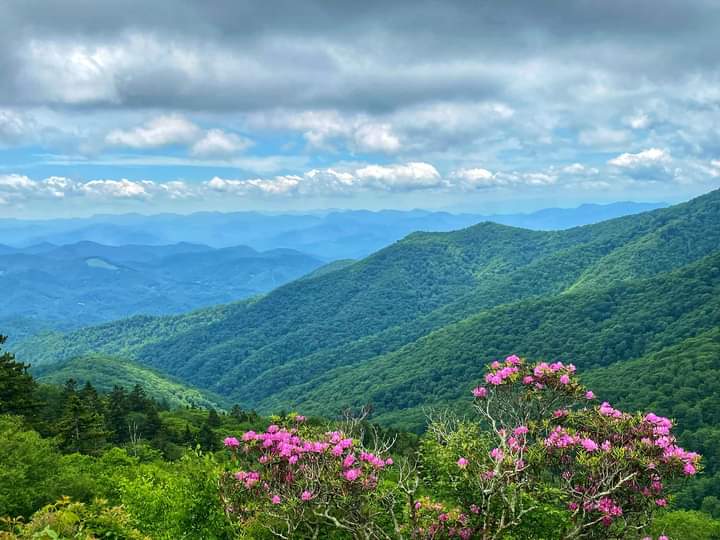
Ridge Trails and Mountain Lakes: Scenic Hiking Adventures Near Asheville in Pisgah National Forest
Explore the finest ridge hikes and mountain lakes around Asheville in Pisgah National Forest. From challenging summits to serene lakeside walks, these trails offer vivid scenery and practical advice to prepare for your next outdoor adventure.
Bring Traction-Friendly Footwear
Rocky and root-strewn paths are common; shoes with solid grip help prevent slips on damp or loose terrain.
Hydrate Early and Often
Mountain air can feel cool but dehydration creeps up fast—carry at least 2 liters of water per person for longer hikes.
Start Hikes Early
Afternoon thunderstorms are frequent especially in summer; beginning your trek at dawn maximizes clear skies and cooler temperatures.
Layer Smartly
Elevations bring rapid temperature swings; pack moisture-wicking base layers, a warm fleece, and a waterproof shell.
Ridge Trails and Mountain Lakes: Scenic Hiking Adventures Near Asheville in Pisgah National Forest
Pisgah National Forest presents a playground for adventurers looking to connect with the raw pulse of the Appalachian wilderness. Around Asheville, a handful of ridge hikes and mountain lake trails stand out for their breathtaking panoramas and tangible challenges, ideal for those who want the physical connection of trekking with clear, memorable views.
Start with the Art Loeb Trail, a 30.1-mile stretch that crests several ridges with elevation gains often surpassing 2,000 feet per segment. The terrain shifts — rocky outcrops give way to sweeping open balds where the winds dare you to lean in. This trail isn’t for the faint-hearted but rewards endurance with sights that open like living murals: the Pink Beds valley below, and distant mountains layered in shades of blue.
For a shorter excursion, the Black Balsam Knob trail spans just over 1.5 miles but packs intense elevation gain—about 800 feet—in a brisk climb to 6,214 feet. Expect a terrain that bubbles between dense spruce-fir forest and exposed heath balds where mountain laurel blooms in spring. The knob’s plateau is a vantage point that feels fiercely itself, offering a wide view slammed by winds that seem to sweep away all distractions.
Further south, the hike to Shining Rock provides a mix of rugged ridgewalking and the reward of a reflective, high-altitude lake. At just under 7 miles round trip with nearly 1,300 feet ascent, the trail challenges knees and lungs on rocky surfaces but opens into a clearing where the lake mirrors the sky’s moods. The granite formations there have faces that seem animated as clouds rove above.
Finally, consider Lake Powhatan for an easier, family-friendly option. This 1.2-mile loop around a small mountain lake delivers rippling vistas of water edged by rhododendron and pine, with casual elevation shifts that gently wake the legs.
Some key prep points: sturdy footwear with grip is essential for rocky, often damp roots. Carry hydration for potential heat spikes during summer hikes and pack layers as temperatures can drop sharply at higher elevations. Early morning starts avoid afternoon showers common in warm months.
The trails hum with life: wood thrushes call from underneath, black bears roam quietly in denser woods, and the forests themselves seem to breathe alongside hikers. Approach these hikes ready to engage with the mountain’s energy, respect its sudden weather shifts, and carry away only footprints. Pisgah’s ridges and lakes aren’t passive backdrops but active companions on your adventure.
Nearby Trips
All Adventures
Boat Charters
Water Activities
Adventures near Asheville, North Carolina
Discover the unique and memorable adventures that make Asheville, North Carolina special.
Frequently Asked Questions
Are dogs allowed on these trails?
Yes, dogs are generally permitted but must be kept on a leash. Be cautious of wildlife encounters and ensure pets have plenty of water.
Is there cell phone coverage on these hikes?
Coverage is patchy along ridges and in remote sections. It’s wise to carry a map and inform someone of your hiking plans.
What wildlife might I encounter?
Black bears, white-tailed deer, and wood thrushes are common. Early morning and later afternoon are prime wildlife viewing times.
Can I camp along these routes?
Yes, backcountry camping is permitted with a permit in Pisgah National Forest, but observe strict Leave No Trace principles and camp in designated areas.
Are the trails suitable for families with children?
The lake loops like Lake Powhatan are family-friendly, while ridge trails like Art Loeb or Black Balsam are best for older kids with hiking experience.
Which trail is best for photography?
Black Balsam Knob and Shining Rock offer expansive ridge views and varied light conditions that create vivid landscapes during sunrise and sunset.
Recommended Gear
Hiking Boots with Good Traction
Supports ankles and provides grip on uneven, rocky trails common on ridges and mountain paths.
Water Bottles or Hydration Bladder
Maintains hydration during intense climbs and warm weather, essential for preventing fatigue.
Layered Clothing
Enables adjustment to rapidly changing conditions on exposed ridges or near mountain lakes.
Lightweight Rain Jacket
Protects from sudden rain showers and wind, especially during afternoon thunderstorms.
Local Insights
Hidden Gems
- "The Pink Beds Preserve offers serene boardwalk trails with quiet forest and swamp views away from the busier mainstream paths."
- "A rarely visited viewpoint near Shining Rock reveals an almost 270-degree vista including the Linville Gorge."
Wildlife
- "Keep an eye out for the elusive northern flying squirrel and the Carolina northern copperhead in rocky outcrops."
- "Seasonal migrations bring diverse bird populations, including the scarlet tanager and pileated woodpecker."
History
"Pisgah National Forest overlays lands historically used by the Cherokee people; remnants of old logging railroads are still visible along some trails, marking the forest’s industrial past."
